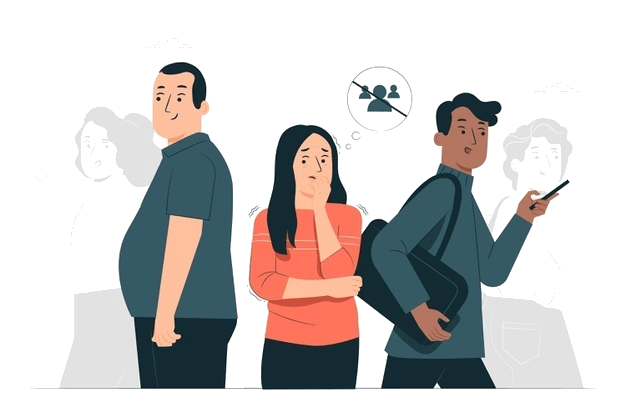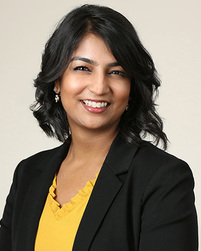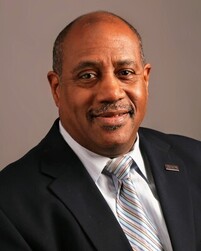Online Social Anxiety Therapy | Best Therapist for Social Anxiety Help
- Set up a free & confidential chat on your Social Anxiety Issues
- Unlimited help through Social Anxiety Self-care App
- Live Video or Chat sessions with top Social Anxiety Therapists
Begin Therapy
Consult online with best Therapist
Get the best help for Social Anxiety
TherapyMantra is here to help you on your path to recovery from Social Anxiety. We match you with the best Social Anxiety Therapists available 24/7 via video call or messages.
Match with Social Anxiety Therapists
We assign the best counselors experienced in Social Anxiety Issues based on your needs.
Affordable and Effective
Our online sessions are 90% less expensive than in-person therapy, available 24/7.
Self-Care for Social Anxiety
We offer ongoing Social Anxiety support through self-care tools, Social Anxiety help videos, chat groups, meditations, breathing exercises, and other resources.

Wondering if it’s just a phase or something more? Take our Free online Social Anxiety Test to find out?
How it works?
You are matched with a Social Anxiety Therapist based on your needs and preferences. You get a secure “therapy room” where you can communicate with your counselor via chat or phone. You can write or talk about Social Anxiety & ask questions to deal with Social Anxiety.

Register for Social Anxiety Counseling
Simply complete a 5-minute online form to tell us about your Social Anxiety Issues

Consult with your Social Anxiety Therapist
We connect you with Social Anxiety Therapists who are available 24/7 based on your preferences and needs.

Connect to Our App
Apart from Video/chat sessions, our app offers self-care tools, videos, and meditations to help you deal with your Social Anxiety.
Best Social Anxiety Therapists
Positive conversations, exercises, and meditations are used by TherapyMantra psychologists to help you deal with Social Anxiety. Our Social Anxiety Therapists outperform traditional counseling as you get matched from a pool of 500+ Social Anxiety Therapists, who offer 24/7 unrestricted private chat.








What is Social Anxiety?
Social anxiety is a type of anxiety disorder that involves intense fear or anxiety in social situations. People with social anxiety may feel anxious about meeting new people, speaking in front of groups, or being judged by others.
They may also worry about embarrassing themselves or feeling uncomfortable. Many people with social anxiety disorder avoid social situations altogether. Others endure them with intense fear or anxiety.
People with social anxiety may have physical symptoms such as a racing heart, sweating, or shakiness. They may feel dizzy or sick to their stomachs. It is a serious mental health condition, but it can be treated. Professional treatment from a psychologist or mental health professional often produces good results.
Types of Social Anxiety
In general, there are three different types or categories of social anxiety. Although you might think that all people with social anxiety disorder suffer from the same thing, it’s not as simple as that. There are different types of social anxiety, each with its own unique set of symptoms.
Performance Anxiety
This is the most common type of social anxiety and it’s what most people think of when they hear the term “social anxiety disorder.” Performance anxiety is when a person becomes extremely anxious in social situations because they’re worried about how they’ll come across or what people will think of them. This type of social anxiety often manifests itself as a fear of public speaking or performing in front of others.
Social Interaction Anxiety
This is when a person becomes anxious in social situations because they’re worried about interacting with others. Unlike performance anxiety, social interaction anxiety is when a person becomes extremely anxious in social situations because they’re afraid of interacting with others, not necessarily because they’re worried about what other people might think of them.
Public Fear
This is when a person becomes extremely nervous in crowded places or in any place where they feel like they’re unable to escape easily in the case of a panic attack. Public fear is extremely common among people with panic disorder, but for some, it can also be a symptom of social anxiety disorder.
Treatment options for Social Anxiety
There are several treatment options for social anxiety disorder. The most common treatments include therapy, medication, and self-help groups.
Therapy
It is usually the first line of treatment for social anxiety disorder. Several different types of therapy can be effective, including cognitive-behavioral therapy, exposure therapy, and social skills training.
Medication
They are also commonly used with social anxiety disorder. There are several types of medications that can reduce or eliminate the symptoms of social anxiety disorder, including:
Selective serotonin reuptake inhibitors (SSRIs): SSRIs are antidepressants like fluoxetine (Prozac). SSRIs take about four to six weeks to start working and must be taken every day.
Benzodiazepines: Benzodiazepines (e.g., alprazolam) are sedatives that help reduce anxiety within a few minutes.
Beta-blockers: Beta-blockers (e.g., atenolol, propranolol) are medications that block the physical effects of stress within a few minutes.
Self-help groups
They can be beneficial for people with social anxiety disorder, as well. These sources of support can help you learn more about the disorder and help you cope with everyday life.
How can therapy help with Social Anxiety?
Therapy is a journey of self-discovery. It can help you to pinpoint what triggers your anxiety, and it can help you discover the root of your social anxiety. It is about learning how to control your anxiety.
Therapy can help you discover strategies that will assist you in managing stress and panic attacks, and it can give you the tools necessary for coping with social situations. It works by breaking down the fear into manageable components.
In this way, therapy can also help you to develop coping mechanisms and healthy lifestyle habits that will support your recovery. It is important to understand that therapy is not a “magic bullet;” it requires time, effort, and commitment.
Therapy options for Social Anxiety
There are a variety of therapy options available for social anxiety disorder. The most common therapies include cognitive-behavioral therapy (CBT), exposure therapy, and mindfulness-based therapies.
Cognitive-behavioral Therapy
It is a type of therapy that helps you change the way you think about yourself and the world around you. It can help you become more comfortable in social situations.
Exposure therapy
This therapy helps you face your fears by participating in activities that cause fear or anxiety. As you participate in these activities, a therapist helps you cope with the discomfort and work through it until it becomes less frightening.
Social Skills Training
It helps people with social anxiety disorder understand how their behavior affects others in various social situations. People learn how to read social cues and respond in ways that are more likely to be successful.
Mindfulness-based Therapies
They are a newer type of therapy that helps people focus on the present moment instead of worrying about the past or future. This can help you learn to accept your thoughts and feelings without judgment, which can help reduce social anxiety.
How to find a Social Anxiety Therapist?
TherapyMantra can help you find a Social Anxiety Therapist near you. We have over 500+ therapists listed on our therapist directory. You can follow the following steps to find a good Social Anxiety therapist:
- First, ask your family doctor or anyone else you are seeing for a referral for a Social Anxiety Therapist.
- The next thing you’ll want to do is ask your friends and loved ones for referrals.
- The next thing you’ll want to do is look online. Many websites help people find therapists in their area who can treat things like Social Anxiety.
10,000+ Happy & Healed patients

“Since Therapy Mantra started treating me, my sleep has improved and I had only one intrusive dream in the past four months. My relationship with my wife has also improved. We are now able to communicate better and share more positive moments. ”
Kevin,
1 year on TherapyMantra
FAQs
The symptoms of social anxiety disorder can vary from person to person, but typically include excessive fear and anxiety, rapid heartbeat, blushing, profuse sweating, trembling, difficulty talking, and/or avoidance of eye contact.
If you think you may be suffering from a social anxiety disorder, please make an appointment to speak with your doctor. If your doctor feels that you are struggling with symptoms of the psychological disorder then he or she will refer you to a qualified mental health professional who can provide treatment.
While there is currently no known cure for social anxiety disorder, treatment exists to help those suffering from the psychological disorder overcome it and lead a normal life.
A specialist in mental health disorders such as a psychiatrist, psychologist, social worker, or counselor.
There is no definitive evidence that suggests there are any genes that cause SAD specifically. It is more likely that the disorder results from a combination of biological and environmental factors that interact to produce symptoms in an individual. Genetic predisposition may play a role in the development of SAD.
People with an immediate family member who has or had SAD are more likely to suffer from the psychological disorder than those without such relatives, but this does not mean that everyone with social anxiety inherits it.


